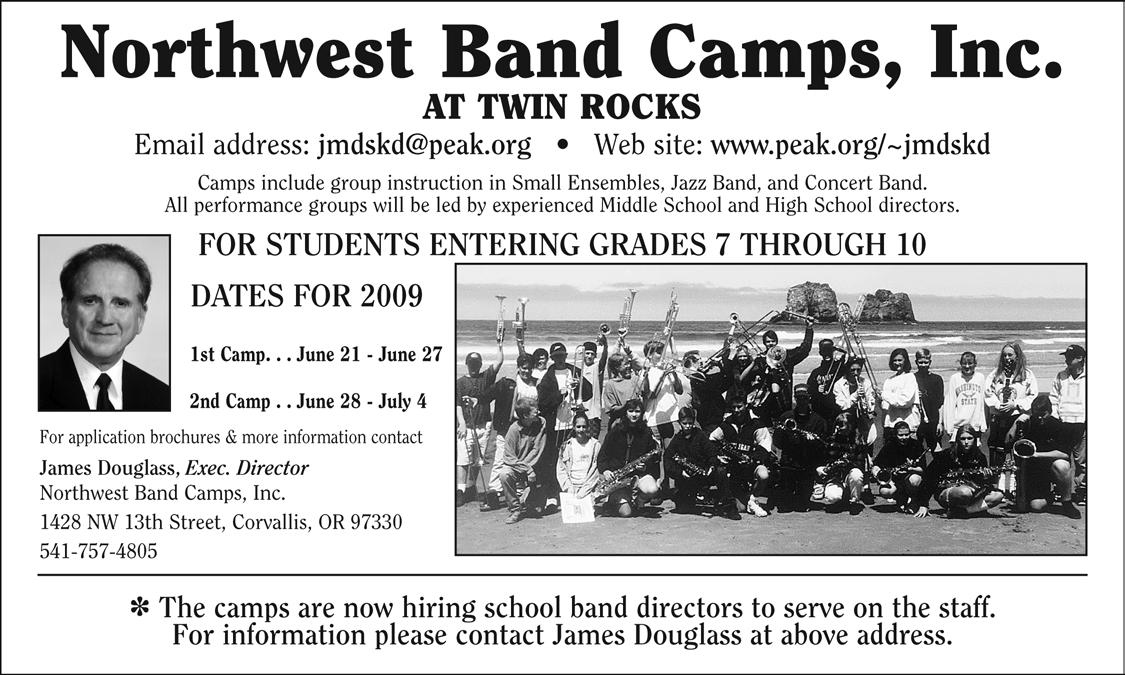
1 minute read
CollegiateColumndr.ChrisChapman CollegiateChair
AcquiringPedagogical SkillsduringMusic educationStudies
Around the country, university students are embarking on their first “real” teaching experience in a classroom setting—student teaching. The mere words strike fear into the hearts of those encountering their first rehearsal without the safety-net of the university professor. Those who already had the opportunity to work with secondary- or elementary-level students prior to this experience may feel less intimidated by the thought of teaching a class. Getting that experience, however, may prove quite difficult. Here are some ways to gain experience teaching while still learning the pedagogical skills necessary for teaching music:
Advertisement
• Ask to rehearse a university ensemble. This may be possible with ensembles geared toward the undergraduate music education student. The music education choir, band, or orchestra directors may allow students to conduct short rehearsals on a section of the music without disrupting the flow of the overall rehearsal.
• Buy the scores of the pieces you are performing. Following the score during rehearsal helps give insight to the conductor's approaches for achieving the composer’s musical wishes. Following the rehearsal, approach the conductor with questions that might arise during your observation.
• Rehearse a chamber ensemble. A number of opportunities may be available to music education undergraduate students working with chamber groups. These pieces generally center around one voice or instrument. Therefore, a student can concentrate on achieving pedagogical skills for that one small group rather than think about rehearsing an entire ensemble and the many parts involved therein.
• Run sectionals. Rehearsing fellow students on your chosen instrument or voice can be beneficial. You already know how to make great music on this voice or instrument. Running a sectional allows you the opportunity to listen intently. Diagnosing problems and giving musical prescriptions will be easier than working with instruments with which you may not be familiar.
• Volunteer at local schools. Assisting may include running sectionals, performing with the ensemble, or serving as a soloist. There is always a chance that the director will give you the opportunity to rehearse one of the teacher's larger groups.
When you first start your student teaching, gain as much experience in front of groups as possible. With practice, the university music education major can improve their pedagogical skill set and immediately contribute to the field. To be considered an accomplished musician requires over 10,000 hours of practice. How many hours of rehearsal practice did you have prior to your first teaching job?
Dr. Chris Chapman Director of Bands Oregon State University









